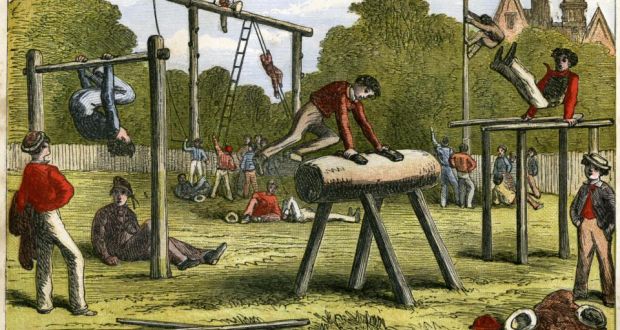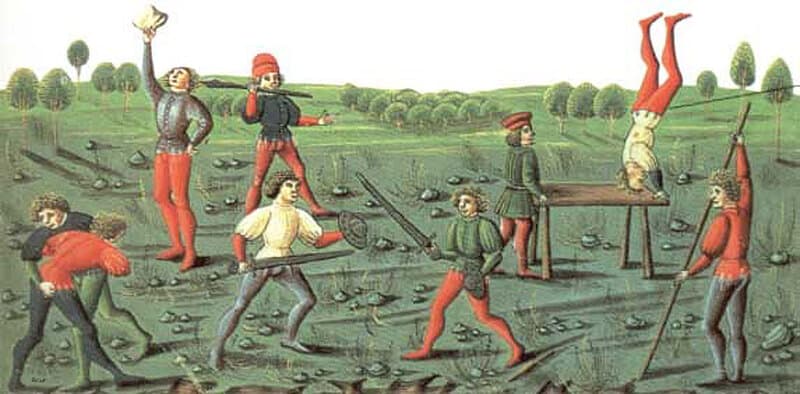In 1537, an English scientist and diplomat, Thomas Eliot wrote a treatise,
with detailed descriptions of diseases and methods of treatment. There were also recommendations about nutrition and exercise, which helped people of the 16th century to stay in shape. Try to compare medieval workout with your man’s in 2020 :)))).

photo: irishtimes.com
Eliot divided the exercises into four categories: slow, fast, power and violent:
1. Slow workouts. Suitable for untrained people or those who can not expose themselves to intense physical exertion. It is long enough to walk or travel by horse, for example, to a neighboring village.
2. Quick workouts. Run; Tennis; Tiptoeing with arms raised; Trotting back and forth; Ball throwing; Fencing. Eliot did not specify to whom exactly such exercises are suitable, but they will obviously allow to develop speed and reaction.
READ What 8 Foods Contain Healthy Fats?
3. Strength training. If you are a young man who is going to participate in the war, then you need: Digging, preferably hard clay; Lift and carry weights; Climb a rope; Climb up the slopes; Fight in your arms with a war lover like you; Tighten up on any suitable bar.
4. Frantic training. Exercises for violent fighters who want to keep fit: Javelin-throwing; The game of football (in the version of the XVI century); Running in a team – you are held by a rope, and you are trying to move forward; Galliard – a dance with a lot of jumps and power elements, for example, holding a partner in your arms.

photo: fortezafitness
Eliot strongly recommends warming up your body before training to avoid injuries. Rubbing muscles with a piece of coarse tissue will help here – start gently, but gradually increase the pace. If your skin turns red, you can begin your workout.
Featured image on thehust.com
READ MORE 5 Detox Products for Everyday

